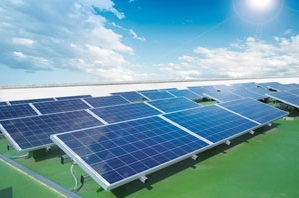Will Japan's earthquake affect the supply chain for solar panels?
 As part of the fallout of the earthquake and tsunami disasters in Japan, companies, including solar manufacturers, have had to stop making their products. This impacts all sectors of business from companies that manufacture just part of a product—like silicon wafers for photovoltaics and computers—to car makers. It is still too early to tell how much of an impact the earthquake will have on the overall photovoltaic supply chain, but the expected quick recovery of at least one solar wafer manufacturer offers hope that the impact will be minimal.
As part of the fallout of the earthquake and tsunami disasters in Japan, companies, including solar manufacturers, have had to stop making their products. This impacts all sectors of business from companies that manufacture just part of a product—like silicon wafers for photovoltaics and computers—to car makers. It is still too early to tell how much of an impact the earthquake will have on the overall photovoltaic supply chain, but the expected quick recovery of at least one solar wafer manufacturer offers hope that the impact will be minimal.
M.Setek, a polycrystalline silicon and photovoltaic wafering plant, owned by Taiwan-based AU Optronics Corp. (AUO), had to cease operations on March 11 because of a lack of access to electricity or water, caused by the earthquake.
Silicon wafers, both mono-crystalline and polycrystalline, are the semiconductors used in most photovoltaics. The inability to produce wafers for photovoltaics could tighten the supply chain of solar materials in the short-term raising prices. But AUO chairman KY Lee said the company expects to resume operations within a week. Lee also said the company sent a task force to help M.Setek recover from the quake.
Japan isn’t the only place where silicon wafers are manufactured for photovoltaics, however.
“The other solar stocks that I cover are Chinese manufacturers, and they source silicon from other Chinese companies or OCI, which is in Korea,” said Christine Hersey, an equity research analyst with Wedbush Securities.
Other companies, like SunPower, Corp., already are seeking alternate sources of silicon for their panels if they need to, Hersey said.
“SunPower said less than 10 percent of their [second quarter 2011] polycrystalline silicon supply was supposed to come from Japanese suppliers,” she said.
In a March 15 press release, SunPower said its Japanese suppliers in affected regions were impacted by the events, but it had alternative sources ready.
“While certain operations are currently disrupted due to infrastructure issues, they have not sustained major damage to their facilities,” the company said.
Since the company only received limited amounts of the materials from Japanese suppliers, SunPower said it does not expect any change to its 2011 production guidance because of the events.
Image courtesy of AUO Solar.



